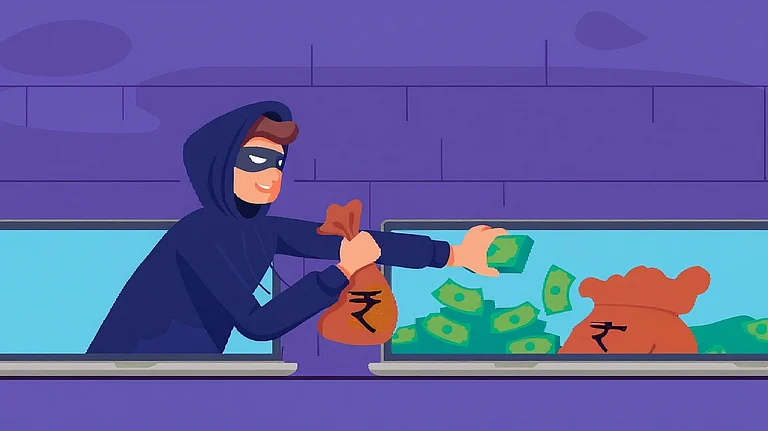Entrepreneur, investor, venture capitalist and now entrepreneur again—what is it about entrepreneurship that keeps you going?
I have been working for 16 years in the internet media and consumer space. I started off at rediff.com in 2000, worked in Yahoo! India for seven years and then I co-founded fashionandyou.com in 2009, built it and exited three years later. At that time e-commerce was just starting up in India. We were a disrupter in the market and in two to three years we raised close to Rs 300 crore in funding. It helped that we were an early mover and were responsible for opening up the fashion and e-commerce industry in the country. After that I launched 5ideas.in, a technology venture capital fund where we invested in five startups over a period of two years, four of which went on to raise Series A funding. During my stint at Rediff and Yahoo! I gained experience in various roles in the internet and mobile space. During that time, I gained knowledge and expertise on two fronts: how consumers interact with the internet and how brands can leverage it to enhance distribution. In 2013, I incubated my own company—Taking Threads, a customised luxury fashion portal. In just about two years, we have 10,000 customers across the globe in 42 countries.
You spent a considerable part of your career with Yahoo! and went on to head their sales in India. What did that experience teach you about internet business? How did that help you make a foray into entrepreneurship?
My experience at Yahoo! especially taught me a lot. It taught me what it takes to build a large business, how to manage large teams and grow a business in multiple locations. This knowledge gave me a lot of confidence to launch my own venture.
‘Founder in Heels’ is a catalyser for women entrepreneurship. What is its key focus? Traditionally, has the path of entrepreneurship been more difficult for women in India?
Even though I do not actively invest any more, through Founder in Heels I like working with women start-ups and help them through mentoring and connections. The reason why we find fewer women in entrepreneurship is not due to any prejudice in our society, and, it is not specific to India. Even in the US, which is ahead of us in many aspects when it comes to the entrepreneurial ecosystem, the number of female entrepreneurs is significantly lower than their male counterparts. Women in general have fewer connections mentors and investors compared to other start-ups.
Another reason can be that women are generally more risk averse, due to which their confidence levels are low. While more boys after college tend to start up something with their friends, for women it is more of a college to job to marriage to children route. Women have to manage a lot of things and mostly that makes them look for stability. In the process, career or entrepreneurial desires get stifled. Lack of connections also mean that many women might not be able to find a co-founder with complementary skill sets.
But this is changing rapidly as more and more women are getting connected to the start-up ecosystem. If ten years ago we had two or three women in every 100 entrepreneurs, now we have eight or 10. And we will see even more women entrepreneurs.
You have been behind FashionAndYou.com, kick starting fashion and lifestyle e-commerce in India. How has e-commerce evolved since then?
We were the first start-up in the fashion e-commerce space. At that time mostly books and electronics were selling online. Clothing was still considered a touch and feel domain and people were not comfortable buying clothes online. But through innovation, we managed to change the consumer behaviour and shift them from offline to online. Now the market is much more mature but fashion e-commerce will continue to grow very rapidly. For smaller towns, online shopping means access, for large towns it means convenience. Now we will see a lot of changes in how products are priced and marketing is done and companies will learn sustainable ways of building their business. We may see a change in the discounts and over-the-top advertising model.
The venture capital ecosystem in India is a maledominated one. Any particular reason? Do you see it changing?
Here too there is no prejudice against women. The venture capital market in India is still very small and there are not many positions that get opened every year. So we can’t suddenly expect to see a lot of women VCs. But this will slowly change. As more and more women launch start-ups that become successful and go to a certain point, or some of the women who have been serial entrepreneurs decide to give back to the ecosystem, we will see more women VCs. This is what happened with me. This shift can also be seen from successful women in the corporate space.
What do investors look for before investing in a start-up? What would be your advice to new entrepreneurs, especially women?
Any venture capitalist will look for a few things in a start-up and that applies to both men and women. First is whether there is a large enough market opportunity and if the business is scalable. Next they will look at how is that opportunity or gap is currently being addressed and whether you have a significantly better or differentiating way to address the opportunity. They will also look at the team, whether the co-founders have complimentary skill sets or not and if they are addressing both the product side and the distribution side among themselves. Finally, they will look at your business model and go through your current product or prototype.
Tell us about ‘Taking Threads’, the mother-daughter venture.
My mother and I set up Talking Threads. I take care of the distribution side using technology and my mother takes care of the manufacturing side. If we look the fashion market in India, on one hand there is the ready-to-wear mass market and on the other hand there is the pricey designer wear which is more of a runway fashion. Talking Threads designs are inspired by heritage thread arts and style aesthetics lean towards classic timeless fashion. We want to provide clothing that women can cherish over a long period of time. So if we can have Chikankari sarees, why can’t we have Chikankari suits and palazzos? On the other hand, it gives customers the ability to collaborate and customise fashion to suit their personal preferences. So we use technology to give each of our customers options to order a garment based on their preference of size, colour, sleeve length, fabric type, and so on, and we can provide her the garment with those specification, using technology as a backbone. Doing this for each customer physically with a stylist or a designer going to each of them would have time and space constraints and hence would not be scalable, but this is. We have partly assembled pieces of clothing and then we make the final customisation and send it to the customer. We are now looking to expand our portfolio of dresses and scale up our distribution across the globe.
You are a mother too. How about work-life balance?
Some women might decide that they do not want to get married or even if they do they do not want any children and focus on their career. I did not give myself such an option. There was a time after the birth of my second child when I wanted to take a break but my husband, parents and in-laws talked me out of it and encouraged me to carry on. I know that I have not been a perfect businesswoman or a perfect mother. So instead of getting 10/10 in both I will probably get a 7 or 8 out of 10. But I have run in multiple lanes. Life is not about optimising one thing over the other. I do get stressed but in the end, all these things that I do make me more fulfilled.
What is your perception of money? Do you manage your own finances?
Money is an enabler. It is the means to an end but not the end itself. I need money to be comfortable and meet my material desires, but I have never taken a major step in life just with the intention of making money. But money does have an economic value. I enjoy travel, a good car and a good house. My husband and I pool resources and optimise it for the economic well being of the family.
Serial entrepreneur and investor Pearl Uppal has 13 years of experience in building start-ups and high growth businesses in the internet industry across media and commerce
First published in Empower, March 2016













